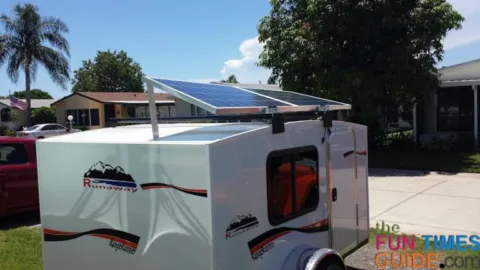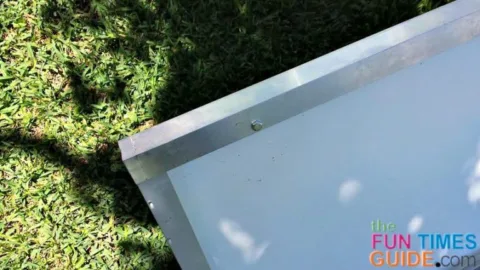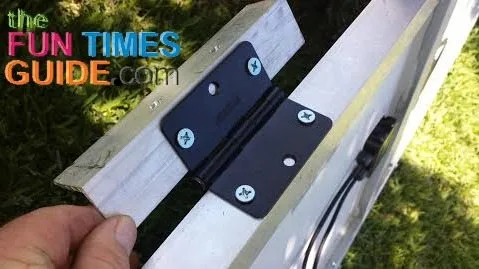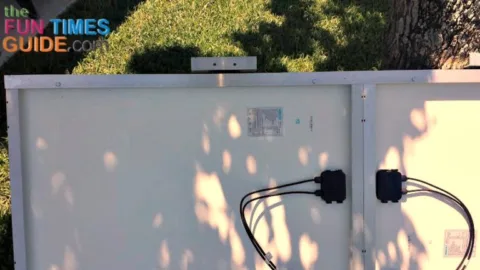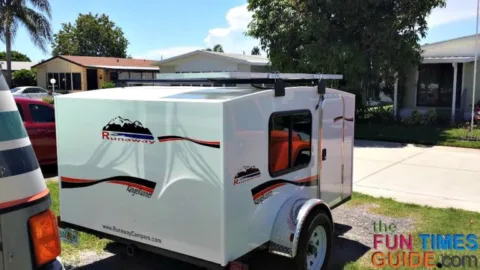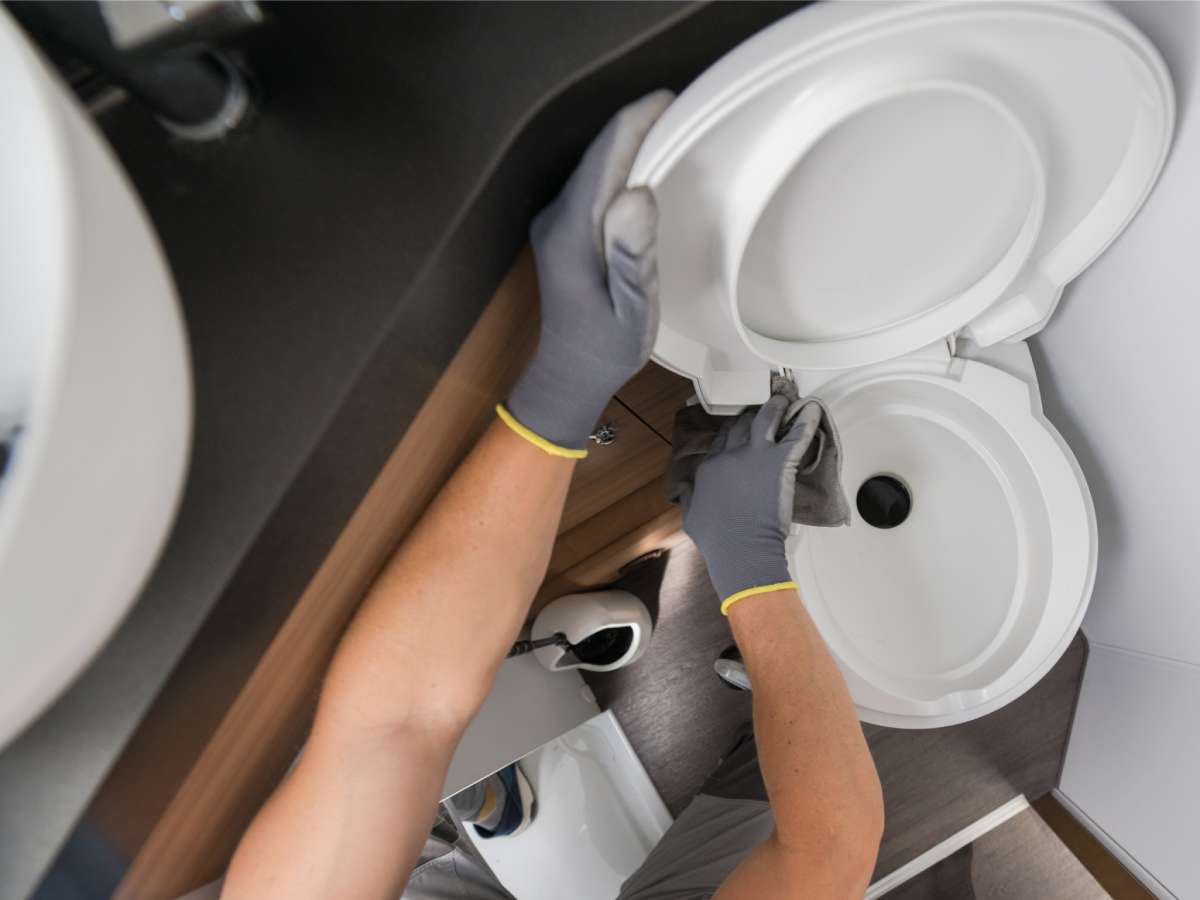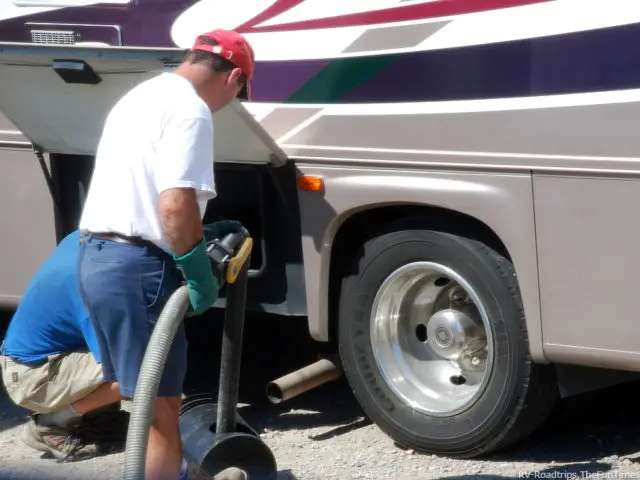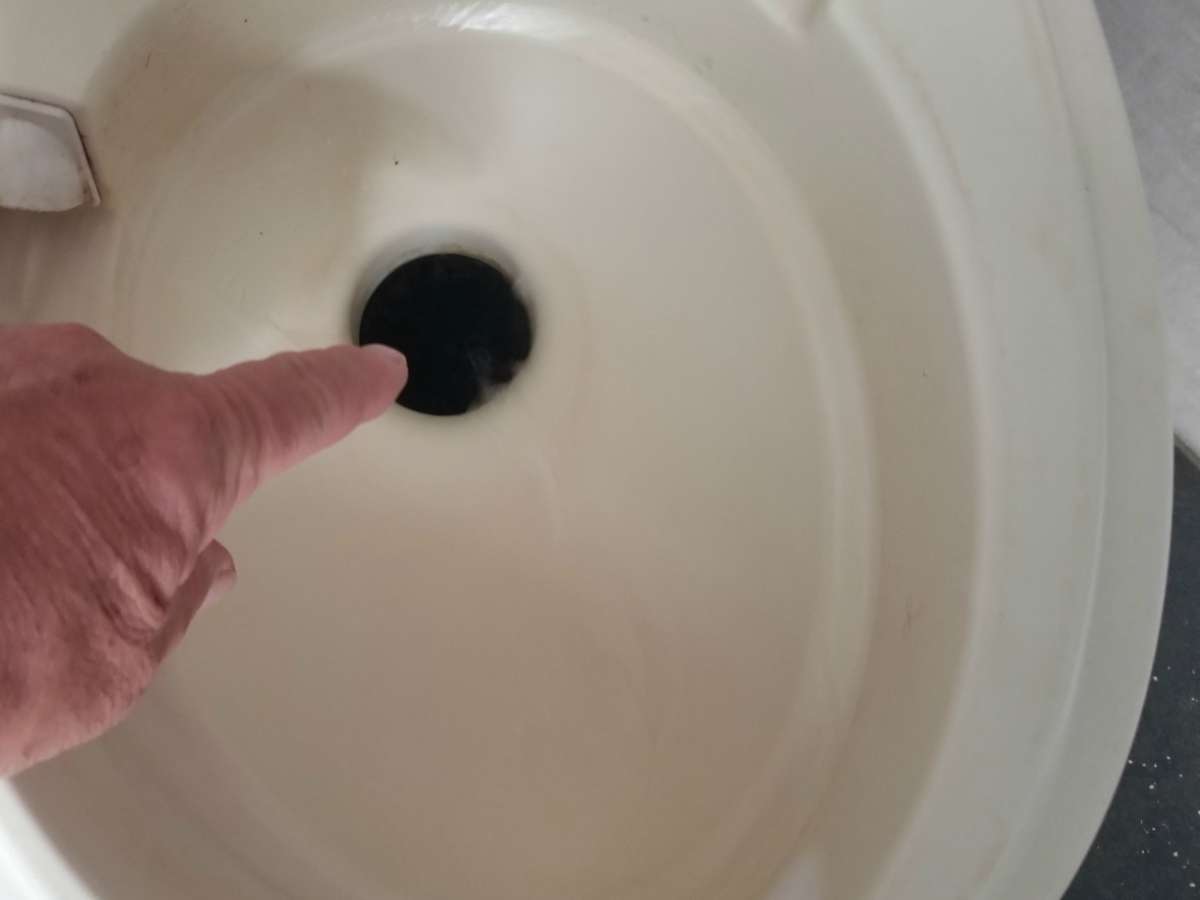It’s pretty common to see larger RVs loaded up with solar panels to run all the appliances and convenience goodies that seem to be standard RV equipment today.
When you’re boondocking away from hookups, who wants to listen to the generator drone away all day?
But what if you’ve got a smaller RV — like a teardrop trailer?
Well, just because your RV trailer is small doesn’t mean you can’t have some amenities, like RV solar panels!
Why I Installed RV Solar Panels
I have a teardrop style trailer, and I eventually decided to install RV solar panels.
For myself, the idea of keeping a cooler stocked with ice is more hassle than I want to deal with — especially if I’m touring or making a long distance trip.
I mean, who wants to fire up the old Coleman stove every morning just to heat water to wash your face or make a morning cup of coffee?
Boiling water for a few minutes in the microwave just makes life a little easier when you’re on the road.
If your teardrop trailer (or any small RV trailer) has roof racks on top, then mounting solar panels is pretty simple.
Here’s how I did it…
My RV Solar Panel Installation
I ordered the 200-watt Renology Solar Kit on Amazon.
The solar panels were bolted to lengths of aluminum angle to make them more ridged, and also to allow for the installation of a couple of good strong hinges.
That way, the 2 RV solar panels could be tilted to improve the charging rate by following the sun. This makes better use of sunlight than when they are mounted flat.
Since my roof racks are made of round pipe, U-bolts were used to attach the solar panels to the RV trailer. (This may vary, depending on how your roof racks are constructed.)
The hinged brackets are enough strength to hold the solar panels to the roof, but tying them down with a rope or bungee cords is advised to keep them from lifting up on the hinges at highway speeds. If not tied down (even when stationary and tilted toward the sun), a cross wind could flip them over — smashing and destroying your solar panels.
Other Ways You Could Mount RV Solar Panels
There is no one-size-fits-all universal way of mounting solar panels to a small RV.
These were the different options I considered before I decided to use the existing roof racks:
#1 – The tow vehicle in this case is a Jeep Wrangler with a hard top. The roof surface is flat and would provide a nice low-profile aerodynamic location to bolt down the solar panels solidly. The remainder of the electronics, batteries, controller, and inverter could all be located in the rear of the Jeep — making the only connection to the actual trailer an extension cord, which could be easily sent out through the back hatch door of the Jeep.
- Pro: This leaves more usable space inside the teardrop trailer — which is already small to start with.
- Pro: You will have your own 110-volt power source mounted in your daily driver — which is something that will come in handy more times than you realize.
- Con: The Jeep Wrangler already has only a small amount of storage space behind the rear seat. This installation would use all of it.
#2 – The 2 solar panels could be mounted to aluminum angle for strength but have it hinged in the middle — so they can be folded face-to-face for storage. When you set up camp, the RV solar panels can be set out as a portable solar system, complete with the controller attached on the backside of the panels. All you would need to do is hook the output of the controller to your batteries and let Mother Nature do the rest.
- Pro: The RV solar panels can be stored in the garage and only loaded into the teardrop trailer when you’re heading out.
- Pro: There is no permanent mounting, altering, or reconfiguring to either your RV trailer or the tow vehicle.
- Con: It’s yet one more thing to lug out and load up before you can go camping.
The choice is yours.
One thing’s for sure: those around you at the primitive camping site will appreciate less noise when you don’t have to run your RV generator all day long just to keep the quart of milk cool in the fridge!
Next up: How To Wire Solar Panels For RV Boondocking In A Teardrop Trailer

